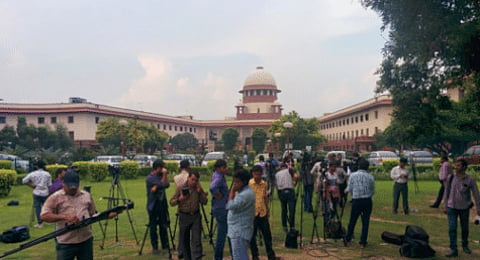
- News
- Columns
- Interviews
- Law Firms
- Apprentice Lawyer
- Legal Jobs
- हिंदी
- ಕನ್ನಡ

A vacation bench of the Supreme Court of India on Friday imposed costs of twenty-five thousand rupees on a litigant for filing an erroneous translation of an order passed in Hindi, as reported by Moneylife.